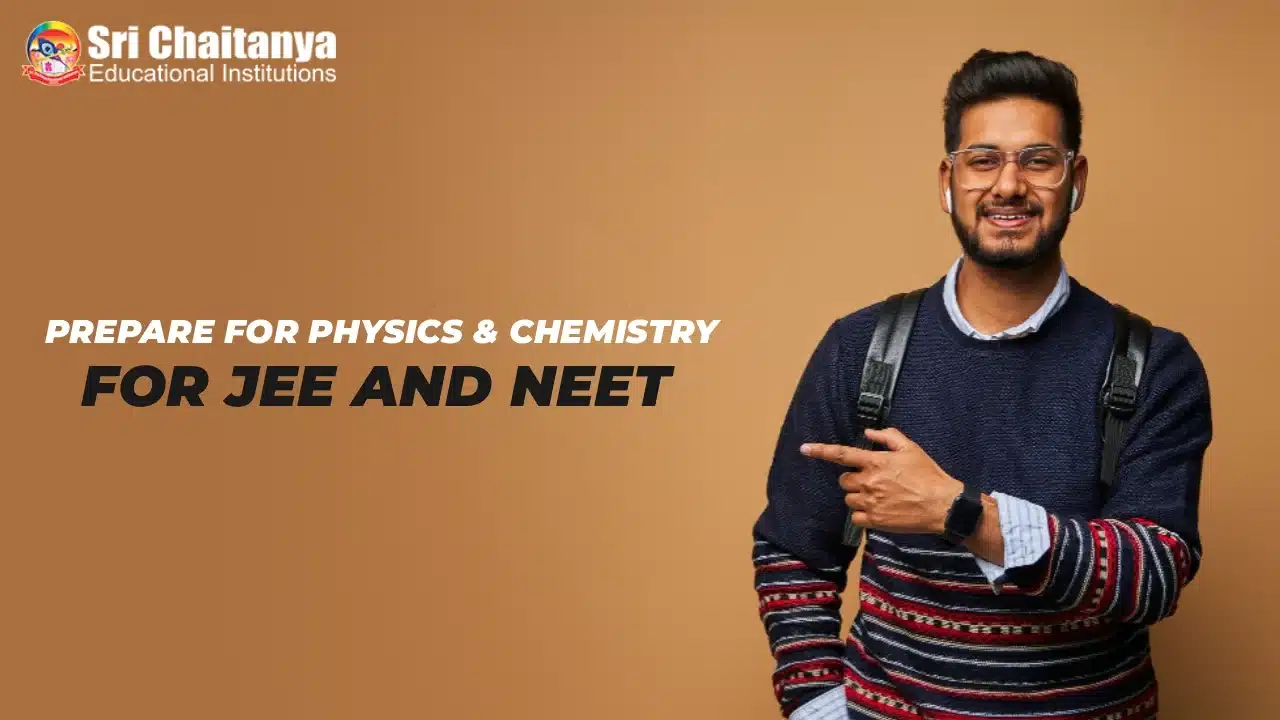
JEE and NEET are the two major national-level competitive entrance examinations conducted for students seeking admission to reputed engineering and medical colleges in India respectively. Both these exams are taken by students who have either completed their 12th standard or will be appearing for their 12th board in the Science stream. Though there are major differences between the two exams, JEE is for students who have studied Physics, Chemistry, and Mathematics as major subjects in the 12th standard and are aiming for an engineering degree. Whereas NEET is conducted for students who have studied Physics, Chemistry, and Biology as their major subjects in their 12th standard and aim for a medical degree. Some students who study Biology as well as Mathematics in their 11 and 12th are eligible to appear for both JEE and NEET.
Both Physics and Chemistry are common subjects in JEE as well as NEET and even the most important topics of these subjects are also the same. However the question patterns of JEE and NEET are different, the questions in JEE are tricky, calculation based, and are based on multiple topics or concepts. As far as NEET is concerned, the questions asked in the exam check student’s theoretical knowledge as well as their concept. Thus, students need to accordingly prepare for their respective exams. Preparing Physics and Chemistry for JEE and NEET requires regular study time and a lot of practice because of the vastness of the syllabus of both subjects. Aspirants of both JEE and NEET should always remember that NCERT is the holy book for their preparation, as NCERT books will help them build a strong base and will help them solve the problems from the reference books.
Preparation Tips for JEE and NEET
Students preparing for JEE and NEET may be aware that Chemistry is comparatively easier and is a high-scoring subject that is easy to understand compared to Physics. Physics is a little difficult and challenging for the majority of students and they first have to grasp the concepts and principles and understand the fundamentals well before moving ahead with the preparation. Students whose fundamentals are cleared will be able to carry out their preparation in an effective manner. The tips given below will help students prepare for both these subjects efficiently.
Clear the Concepts – No matter whether the students are preparing for JEE or NEET, they must have absolute clarity of the concepts of both Physics and Chemistry. However, to prepare for Physics, students also need to practice questions from basic mathematics like differentiation, integration, and trigonometry. After understanding the concepts students can practice questions based on them.
Make Notes – Making notes on important topics in every chapter of Physics and Chemistry of the NEET and JEE syllabus will prove to be of great help to the students. These notes will greatly help them in their final stage of preparation and while revising. Students should make notes of all crucial equations, formulas, and tables in clear, simple, and understandable language to make their learning more effective.
Practice Previous Years’ Papers – After mastering the concepts and fundamentals, students should solve previous years’ papers to understand the exam pattern and know the difficulty level of the exam. At first, they may find questions challenging but with consistent practice, they will be able to manage these questions. Students should try to solve at least the last five years’ papers to get acquainted with the exam pattern.
Refer to the Best Books – Students should carefully select Physics as well as Chemistry books for reference, besides their NCERT books. There is no denying the fact that NCERT books are the finest for laying a strong base for both JEE and NEET. Some of the best Chemistry books that will be helpful for the NEET and JEE preparation include Modern Approach to Chemical Calculations by R.C. Mukherjee, Physical Chemistry by O. P. Tandon and A.S Singh, Modern ABC for Chemistry for Class 11 & 12 by S. P. Jauhar and best Physics books for the preparation include Concepts of Physics (Vol I & II) H.C. Verma, Problems in Physics I.E. Irodov, and Aptitude Test Problems in Physics Krotov.
Besides following these tips, students should also join some good coaching institutes like Sri Chaitanya to receive proper mentoring and assistance in their studies. Students should also try to be honest with their classes and study. They need to consistently devote a good amount of time to self-study and also be regular in their classes. The students should pay attention in their classes and try to understand the concepts taught by their teachers.


